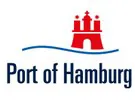 The Conference of Peripheral Maritime Regions (CPMR) Baltic Sea Commission (BSC) Transport Working Group, together with the Helsinki-Uusimaa Regional Council organised an Expert Meeting and Open Forum on Trans-European Transport Network (TEN-T) policy revision. The latter being the lead partner of the BSR Access platform project. Both events took place during the Digital Transport Days in Helsinki, on the 9th and 10th of October 2019 respectively.
The Conference of Peripheral Maritime Regions (CPMR) Baltic Sea Commission (BSC) Transport Working Group, together with the Helsinki-Uusimaa Regional Council organised an Expert Meeting and Open Forum on Trans-European Transport Network (TEN-T) policy revision. The latter being the lead partner of the BSR Access platform project. Both events took place during the Digital Transport Days in Helsinki, on the 9th and 10th of October 2019 respectively.
While the Expert Meeting highlighted good governance and stakeholder cooperation in the TEN-T policy, the Open Forum focused on how this policy can contribute to gaining cohesion in the European Union (EU).
The Expert Workshop brought together 45 transport policymakers at European-, national- and regional levels. Attending stakeholders discussed the relevance, effectiveness and efficiency of the TEN-T guidelines.
The meeting was opened by Ms. Catherine Trautmann, European Coordinator of the North Sea – Baltic Core Network Corridor (CNC). She announced that the debate on the multiannual financial framework package for 2021—2027 is still on-going and we need a strong CEF 2 to deliver sustainable transport in the future.
The BSR Access partnership actively contributed to the event by presenting best practices and finding derived from past BSR projects.
Mathias Lindstrom, Director of Kvarken Council, for instance shared their experience from Vaasa-Umeå Region on intensifying cross-border cooperation by establishing a European Grouping of Territorial Cooperation (EGTC) as a European legal instrument designed to ensure implementation of cross-border development projects, maintenance of cross-border infrastructure and day-to-day cooperation. He stressed the importance of extending the TEN-T network northwards. Regions and urban nodes are only to receive additional funding if they are part of the TEN-T map.
Another hot topic that was discussed is the deployment of renewable clean fuel. Nora Schindler from Berlin-Brandenburg Joint Spatial Planning Department, co-founder of the Scandria®Alliance, presented the project results on utilising means of governance to enhance the harmonisation of clean fuel deployment and green mobility solutions. This work is continued by them within the BSR Access platform project.
At the end of the Expert Meeting, Ms. Trautmann particularly expressed her gratitude for the area of alternative fuel. Looking at the current state investments in hydrogen, there is currently no coordination between the Baltic countries. However, Ms. Trautmann promised to make this a priority now and integrate cohesive planning to make green hydrogen a reliable energy source in the future. In order to achieve this goal, public authorities - European, national and regional - and business stakeholders working in (hydrogen) fuelling station deployment have to work more closely together in the future:
“We see that there is a real added value through cooperation when it goes through (…) the first mile to integrate and to give content to the corridor. The corridor must be a sort of frame and an opportunity and an enabler, but it is nothing if we don’t have the will to go quickly through cross-border issues and bottlenecks.“
To read the full press release, please click here.
